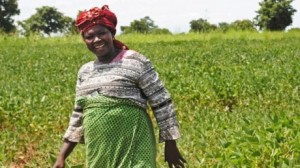MOTIVATION
The Women’s Empowerment in Agriculture Index (WEAI) was developed in 2011 by IFPRI, USAID, and the Oxford Poverty and Human Development Initiative to directly monitor and support the empowerment and inclusion of women in agriculture as part of USAID’s Feed the Future program. WEAI is a first-of-its-kind tool measuring the roles and extent of women’s empowerment in agriculture relative to men within their households, particularly women’s control over critical parts of their lives. It also helps in identifying the women who are disempowered and what areas they are disempowered in, information that is instrumental in designing solutions to close the empowerment gap.
RESULTS AND OUTCOMES
- Since its launch, WEAI has been revolutionizing how women’s empowerment and its role in agriculture are seen and measured. Bangladesh was one of three countries that piloted WEAI and the first country to implement it in a nationally representative survey—the BIHS. Through WEAI, the Government of Bangladesh identified empowerment gaps, which motivated the Ministry of Agriculture to design interventions targeted to closing these gaps. IFPRI’s detailed analysis of the BIHS and WEAI was referenced in the Nutrition Background Paper prepared to inform the 7th Five Year Plan (2016–2020), substantiating the impact of gender inequalities on nutrition. The plan emphasized the importance of "[ensuring] women’s advancement as self-reliant human beings and [reducing] discriminatory barriers by taking both development and institutional measures."
- Civil society organizations in Bangladesh have expressed interest in adopting WEAI for project use, which IFPRI is currently working on. Some nongovernmental organizations, notably BRAC and Helen Keller International, are working with IFPRI to develop the project-level WEAI.
- The index has received widespread support from developing and donor governments alike. In 2012, then US Secretary of State Hillary Clinton recognized it as an example of a tool created to integrate gender equality, and then USAID Administrator Rajiv Shah explained that it can serve as a means to help women farmers in poor countries produce more crops and gain greater influence over the agricultural economies of their countries. At the 2012 UN Special Commission on the Status of Women, Bangladesh’s then State Minister of Women’s and Children’s Affairs Shirin Sharmin Chaudhury described how the index is useful in defining the obstacles rural women face in their important work as farmers and caretakers.
For more information on IFPRI's research and partnerships in Bangladesh, please go to this brochure.



